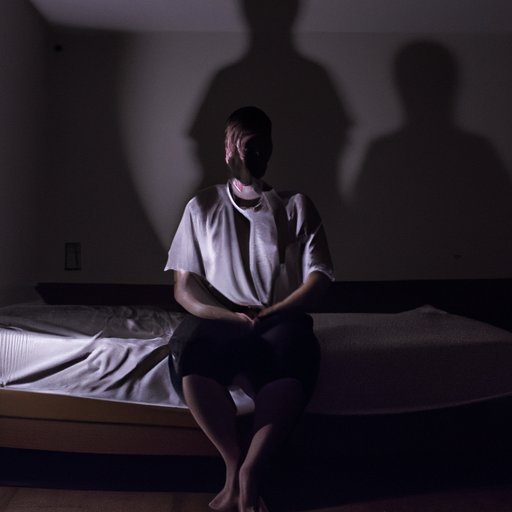Introduction
Fear of the dark is a common issue among children and adults alike. The technical term for this fear is nyctophobia, which is defined as an irrational and persistent fear of night or darkness. This article will explore different ways to help you cope with your fear of the dark and learn to not be scared.
Understand why you’re scared
The first step in overcoming your fear of the dark is to understand why you are scared. According to research conducted by the University of California, Los Angeles, it is typically caused by a lack of control or feeling of vulnerability in the dark. It is important to identify the source of your fear so that you can work through it.
Learn relaxation techniques
Once you have identified the source of your fear, it is important to learn some relaxation techniques. Taking deep breaths can help reduce your stress and anxiety levels, while practicing meditation can help you stay focused on the present moment. Mental imagery, such as imagining yourself in a safe and calming place, can also help you relax.
Get comfortable with the dark
Once you have learned some relaxation techniques, it is time to start getting comfortable with the dark. Start by spending a few minutes in a darkened room each day and gradually increase the amount of time spent in the dark. This can help you become more familiar with the dark and less fearful of it.
Use a night light
Using a low-level light, such as a night light, can help make the darkness seem less intimidating. Research has found that a night light can provide comfort and security for those who are afraid of the dark. It can also help keep you from feeling vulnerable or out of control.
Talk to someone
Talking to someone about your fear of the dark can be beneficial. It can help you put things into perspective and gain insight into the source of your fear. Talking to a therapist or counselor can also be helpful, as they can provide you with additional support and guidance.
Conclusion
Fear of the dark is a common issue that can cause feelings of anxiety and distress. However, by understanding the source of your fear, learning relaxation techniques, getting comfortable with the dark, using a night light, and talking to someone, you can learn to manage your fear of the dark and not be scared.
(Note: Is this article not meeting your expectations? Do you have knowledge or insights to share? Unlock new opportunities and expand your reach by joining our authors team. Click Registration to join us and share your expertise with our readers.)
